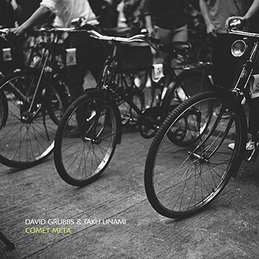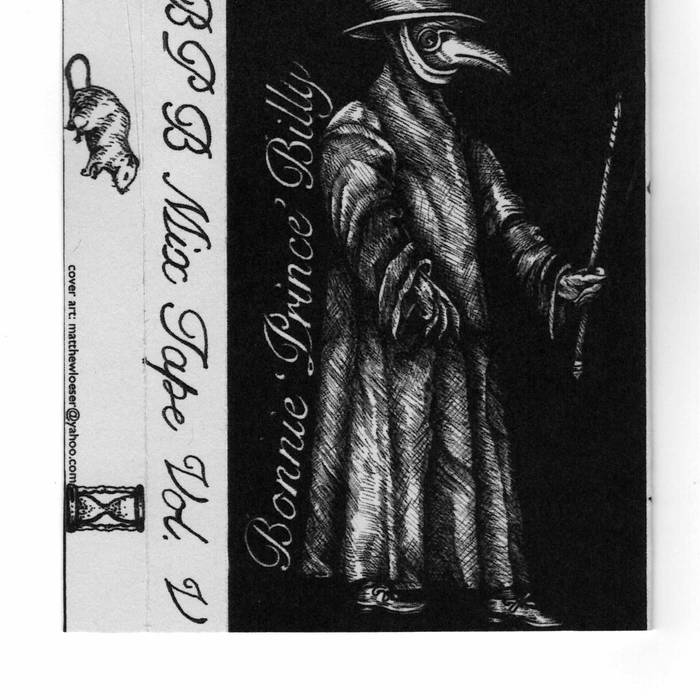In “Heart of the Thrumming House”, the fourth track off the new David Grubbs and Taku Unami collaboration, Comet Meta, listeners can be forgiven for feeling the surroundings are a little familiar, that peculiar déjà vu of sensing that they’ve been here before. There are Grubbs’ fragile and sparse, borderline-nonexistent guitar figures, and Unami unleashes undulating waves of enrapturing electro-acoustic sound – both familiar tropes. At about the 5:30 mark, though, a block of white-noise enters the frame and the whole thing, more resolutely pulsing, starts to resonate with the grand vistas and machines’ dying breaths of Gastr del Sol’s “Our Exquisite Replica of ‘Eternity'”, a masterwork Grubbs helped compose some 25 years ago. The song, a wonderful nine minutes in all, is not a copy or simulacrum of “‘Eternity'” – far from it – but the ambiance taps into some sort of life-blood or constant current running through Grubbs’ work. For a man who seems always to be looking forward, “Heart of the Thrumming House” is almost a reprisal, a second glance, a thoughtful reconsideration of forms and tone.
Comet Meta is a brilliant record full of compositions and moments worthy of their own accord, but what’s really enticing is that it’s not only by Grubbs but of him. It is perhaps the most emotive, dream-like, and, yes, accomplished piece of Grubbsian experimental post-rock I’ve ever heard – and rivals, in its humble, unassuming and understated way, even Grubbs’ jaw-dropping Creep Mission, from 2017.
“Heart of the Thrumming House” is not the only piece that somehow hearkens back to Grubbs’ earlier work without mimicking or aping it, without acting as some sort of self-referential/reverential photostatic copy. The opening title track – a 10-minute opus of floating guitars that itself could lead a master class in texture and restraint – echoes the guitar fluidity of a track like the early Gastr staple “A Watery Kentucky”. But it’s so magnificently orchestrated and composed that it makes the former look like the more raw, full-throated “Is That a Rifle When It Rains?” An unexpected detour of colluded finger-picking on the title track between the two players is lavish and Baroque to the point where it brings to mind the lute works of German-Italian composer Giovanni Kapsberger, which the work may or may not be referencing in its toccata bravura and unusual pairings of rhythm and time.
This is not a David Grubbs record alone, though. Unami, for his part, makes the resplendent look downright accessible, simply executed even, with his subtly disorienting measures on electric guitar – sometimes feathery, sometimes floaty — which are reminiscent of the best Hontatedori and offer their own cognitive dissonances and readings. There are elements of sci-fi dreaminess in Unami’s electro-acoustic swells and gestures (“Heart of the Thrumming Noise” is particularly accomplished). And Unami’s love of horror is referenced in the title of the last composition, “Walking Corpse in an Old House”, a nod to early Chinese horror cinema.
Unami’s decaying lines of reverb-drenched guitar on “The Furthest Farthest” are entrancing. The duo’s “Nothing Left to Hear But the Night” is a jazz ballad creeping across the Arctic at a patient, though glacial pace. Hearing this in the digital domain, rather than on vinyl, lends it a cold precision and iciness that would be hard to capture with the background hissing of the needle’s drag. In short: it can be downright riveting.
Grubbs is a natural collaborator – he’s been in bands with Slint’s Brian McMahan and Tortoise’s John McEntire and worked alongside masters like Tony Conrad and Mayo Thompson. But he has found a careful ear in Unami. The two carefully composed the new LP by sending mail-art samples between Tokyo and Brooklyn. and the level of care each took with their phrasings is incredibly evident.
But Comet Meta is not just a feast for fans of Grubbs’ and Unami’s guitar work. The second track, “Mirror Auction at Echo Décor”, features spare piano motifs seemingly devoid of scale. This liminal experience almost directly references the nature of how the work was created. The closing track, with ominous click-track percussion, features similar piano ruminations that echo geographic dislocation. “We started work on the record in the spring of 2018 during a tour that took us to Hong Kong, South Korea, and Japan,” Grubbs told me recently. “For me, the album represents the dislocation/disorientation of that short tour, and being open to new experiences and new sensations.” Nowhere on the six-track LP is this better illustrated than “Mirror Auction at Echo Décor”.
The experiences on Comet Meta are most definitely new – almost always ethereal and often falling between a sleepy lullaby and morphine-drip requiems. It’s fascinating how both players seem to be taking stock of their best traits and best work, all while shooting ever forward in the glassy night. – Justin Vellucci, PopMatters, June 1, 2020
-30-




